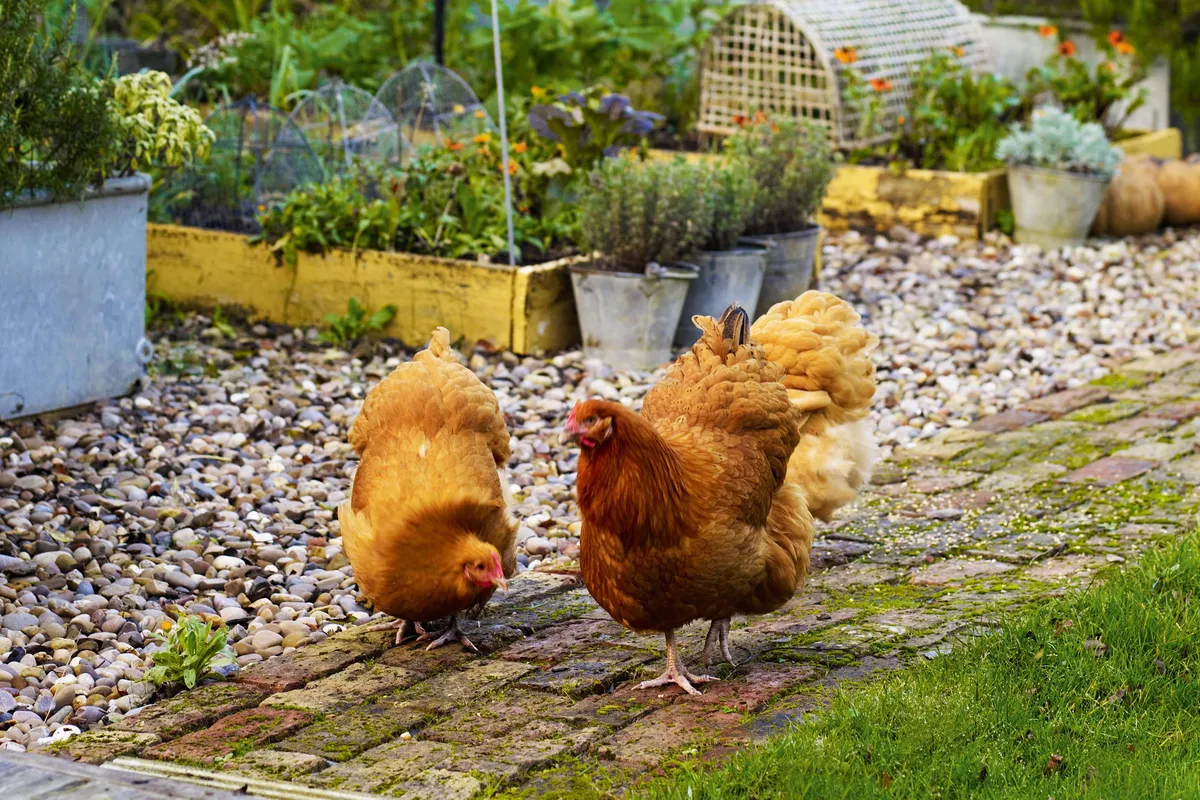As Avian flu spreads throughout the globe, the UK government has announced that from 7 November all poultry and captive birds must be kept indoors. This 'housing order' affects both commercial and domestic flocks at a time when the intensive farming of poultry is at all time high and thought by many to the original source and reason for bird flu now reaching plague proportions.
With 5.5 million birds having died or been culled since October 2021 worldwide, including 2.3 million birds killed in October alone, we must we protect our chickens as best we can during this time. Many of the hens in back gardens will be rare and pure breeds with valuable genetic diversity.
The order of housing poultry indoors – being called ‘flockdown’ – can easily be confused with the idea that hens have to be shut in their hen houses which is not the case and will, for many birds, be a bad compromise on their welfare. What this order actually means is that the hens can be allowed outside into an enclosed run but only if the area is covered over – think chickens on the veranda! Here’s a breakdown of how to look after your chickens throughout the avian flu outbreak.
Defra's guidelines for Avian flu control measures from 7 November
- All keepers of poultry and other captive birds, including pet birds must take precautions to avoid the direct or indirect transfer of virus contamination.
- You must place a foot dip placing Defra approved poultry disinfectant at entry and exit of all houses and outdoor areas where birds are kept.
- Feed water and bedding must be under cover.
- Ducks and geese should not be kept in the same pen.
- You must control vermin effectively.
How to avoid the spread of avian flu in garden chickens
Get a cover for your run
If your hen house has an attached run, then covering the top and half of the sides with something that stops wild bird droppings from falling through is enough to conform to basic legislation. Use either a clear plastic tarpaulin or green horticultural fleece kept in place with bungee cables. However to ensure good welfare much more thought will have to go into how you keep your birds on a daily basis to keep them content in a smaller space.

Could you convert a fruit cage?
Convert a fruit cage – moving a hen house into a fruit cage is an ideal location for flockdown offering good space, ventilation and the woody stems of soft fruit will be appreciated as cover by the hens. Make the bottom sides fox proof by encircling them with 3 ft high thick 12 gauge mesh. Lie the same mesh flat on the floor and tent peg it down so that nothing can dig into the fruit cage too as it will act like a fox paw resistant skirt.
Avoid rats and squirrels at all costs
Remember that rats and squirrels can bring in disease to your hens as well as stealing the feed. They must be kept away from your hens at all costs. The best prevention is to use rat resistant feeders. My favourite is one by the British company Roam and Wild that hangs up at a height so the hens tip toe to feed. It’s feed gulley closes if anything without a beak tries to access. It’s not suited though to crested hens such as Polands, though.
Invest in a foot dip
It is advisable to have a foot dip for your shoes outside the run of your chickens because bird flu can be carried by us. A washing up bowl filled with water and a sachet of the approved disinfectant Virkon S to wash your boots in every time you visit the hens will prevent this.
- Here's the foot dip I'd recommend
Make sure your hens are happy and stimulated during flockdown
Hens that are used to free ranging need to be kept well stimulated to avoid feather pecking. Keep them busy during flockdown with a good litter for them to scratch in. If the hens are placed somewhere completely covered and dry, use dust extracted chopped straw – the brand I use has added eucalyptus. Outside covered runs can be covered with bags of wood chippings and autumn leaves but sprinkle these firstly with a dust of virkon S powder in case of any possible wild bird contamination and rake it through. This deep litter can be composted and is an ideal garden mulch afterwards. Dry greenhouse soil and spent compost is ideal to give to the hens in a deep tray so that they can dust bath which is how chickens keep themselves clean.
Encourage flapping and perching
Hens can be encouraged to exercise by having a number of perches, use old garden chairs and tables for this. Extra perching space will help the lower ranking hens in the flock’s pecking order escape more dominant birds during flockdown.
Avoid feather pecking
Alfa pecking blocks are brilliant enrichment for hens, full of natural protein and digestible fibre. They’ll also assist in keeping the yolks of eggs golden while your hens can’t free range. Allen and pages soya free layers crumble is a good general ration to feed your hens during flockdown because it’s a very fine mash so the birds will be kept occupied for longer while eating.
- Here's where to buy it
Wondering about garden bird hygiene? Here's more on keeping your bird feeders clean